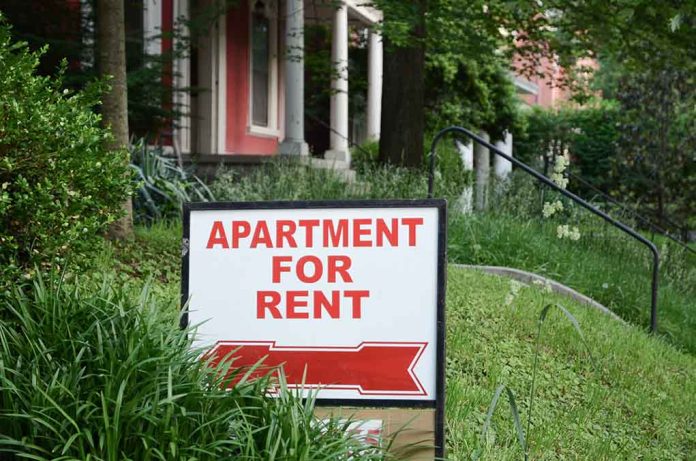
Can’t Pay Rent? 5 Options For You To Consider
(StraightNews.org) – Times are hard for everyone, and many people struggle to pay their rent. Eviction is not a short-term problem; many people evicted for nonpayment of rent can find it extremely difficult to find replacement housing.
Some people are lucky enough to have savings or a retirement or college fund to dip into. Maybe they can reduce some of their other expenses or get help from their families. Once these funds are gone (or not available in the first place), people can fall dangerously behind. Fortunately, several resources exist to help. Some temporary programs were established in the wake of the COVID-19 pandemic, while others are more permanent options.
Talk to Your Landlord
It seems simple, right? But many people forget or fear talking to their landlords. Tenant turnover is a significant expense for landlords. Due to this, most want to avoid evicting if they can. If you have a good relationship with your landlord and have a good payment history, they may be willing to work with you. It is essential to ask for help before your payment is due, as a landlord will likely be more inclined to help you make payment arraignments till you get back on your feet.
Not all landlords will be willing to help, but being proactive can improve the likelihood of getting an extension and save your landlord money as well.
Emergency Rental Assistance (ERA) Programs
Pandemic assistance may be winding down, but ERA programs are still actively accepting applications in many places. Each program has different eligibility requirements, but they typically serve low-income households that likely do not have enough savings to support them.
Check the link above for options in this area; as pandemic assistance is winding down, funding for these programs is in much higher demand.
Section 8 (The Housing Choice Voucher Program)
Qualifying low-income families, the elderly, and people with disabilities can apply for Section 8 housing vouchers. These vouchers help pay for part of the rent, and the renter pays the rest. You can apply for Section 8 housing in your existing home, but it does require your landlord to agree. Since it costs landlords money to get new tenants, many will likely be willing to work with you.
You are usually eligible for Section 8 housing if your income is more than 50% of the median income in your county. There is typically a waiting list, so this option may not work in an emergency. If many people need assistance, the waiting list may be temporarily closed until more resources become available. Local programs usually give preference to homeless families and involuntarily displaced people.
Non-Profits and Charities
There is a variety of local and national charities which assist with rent. Charities can usually only afford to provide short-term assistance but is a good option for those facing an emergency situation. Charities can also offer assistance with additional expenses, such as food and clothing, freeing up those funds for rent.
Relocation Assistance
Sometimes people may be in a situation where their home, which they used to be able to afford, is now out of their budget. A change in employment, chronic illness, or a death in the family, many things could cause affording the rent to become an issue. Additionally, their landlord could drastically raise the cost of rent, making it unaffordable. In this case, some charities can provide funds for movers, cover a security deposit, or help with a down payment. People can also receive government assistance from the Homelessness Prevention and Rapid Re-Housing Program if there are in imminent danger of becoming homeless. This program can also help with short-term rental assistance.
People who cannot afford to pay their rent need help. Luckily, there are many programs out there that can assist. As the emergency pandemic programs wind down, government programs such as the Homelessness Prevention and Rapid Re-Housing Program, Section 8, and even local and state charities can help.
Copyright 2022, StraightNews.org













